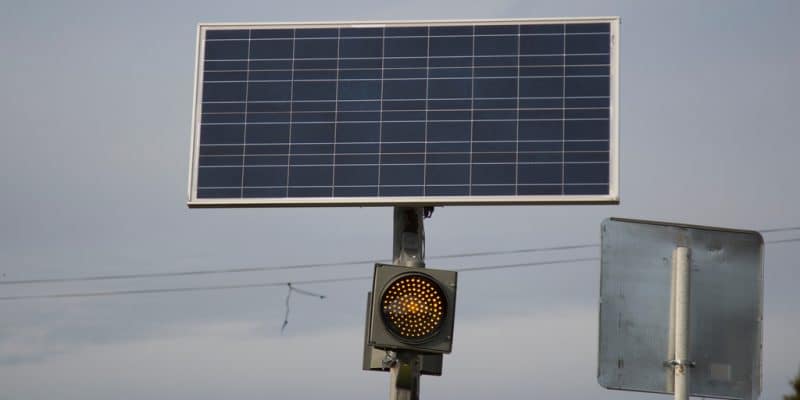For several weeks now, the government of Lagos State in Nigeria has been testing solar-powered traffic lights. With this clean energy, it wants to reduce traffic congestion caused by an unstable power supply.
In the southwestern Nigerian state of Lagos, the problem of traffic congestion is a daily challenge for the authorities and road users. This is due to an unstable power supply. “Sensors or traffic light controllers in the area are operating on electricity. In the event of a power failure, the sensors switch off and the lights stop working. It is this recurrent situation that causes traffic jams,” says Obafemi Hamzat, the Vice-Governor of Lagos State.
In order to solve the problem of traffic congestion and access to electricity, the Lagos state government has been experimenting with solar-powered traffic lights for several weeks. The old electric collectors manufactured in Lagos State are being replaced by solar-powered collectors. “These new collectors allow us to have an electrification system that works all the time. As soon as we complete our tests, we will adapt these collectors to all the traffic lights in the state. We will also repair the ones that are damaged. In six or seven months, I think the traffic jam problem will be solved,” says Hamzat.
The Lagos state government’s initiative is in line with the Nigerian federal government’s renewable energy policy. In fact, the National Electrification Project (NEP), one of Nigeria’s largest electrification projects, will be based on solar energy.
The National Electrification Project
NEP aims to provide access to electricity to households, micro, small and medium enterprises in off-grid communities in Nigeria through renewable energy sources.
Mini-grids will be installed in 250 communities in four states (Niger, Ogun, Sokoto and Cross Rive). The NEP is being implemented by the Nigerian Rural Electrification Agency (NREA), a state-owned company responsible for the electrification of rural communities not served by the national network.
The project has received joint financing of US$200 million (about 78 billion Nigerian Naira) from the AfDB and the Africa Growing Together Fund (AGTF).
Inès Magoum






